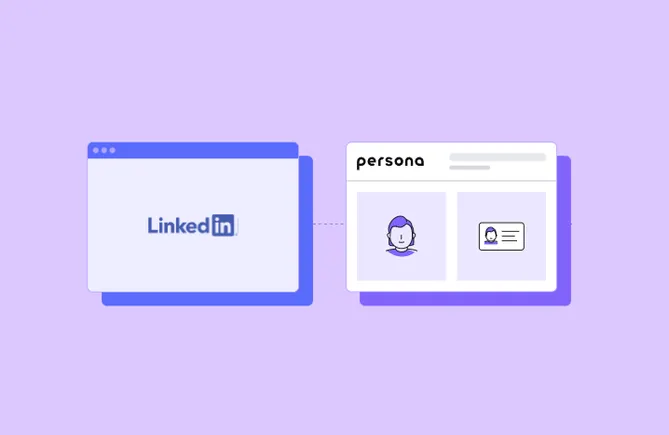Google, Microsoft and IBM are bullish on quantum computing. Are the chips of the future for real?
Quantum promises huge breakthroughs in drug discovery and last-mile delivery, but there are still unknowns about what a world in quantum's hands will mean.

While there are still differing perspectives on how long it will be until certain types of quantum computing hit commercial viability, experts from big tech companies like Google and IBM as well as smaller organizations like D-Wave Quantum and TreQ generally agree on quantum's most mature, promising industry applications, which range from medical insights to last-mile delivery optimization. Yet, in a space teeming with unknowns, there's still a lot to learn about the potential fate of a world in quantum's hands.
Unlike classical computing, which processes information through bits that can exist in either zeros or ones, quantum computing is an evolving field where quantum bits (or qubits) can occupy both zero and one in a single unit. These qubits can then basically communicate with each other to further increase the speed and complexity of information processing in a calculation.
Within the field of quantum computing, there are two types of technologies. What most people refer to when they talk about it is universal gate-based models. The second model is called annealing quantum. "It's a different technology," explained Mandy Birch, CEO and founder of TreQ, a quantum systems engineering company focused on manufacturing applications.
Companies like Google, Microsoft, Amazon and IBM are aggressively pursuing gate-model quantum computing, each with different qubit technologies and strategies. D-Wave is largely working with annealing technology, which primarily serves companies that want to optimize their operations. Annealing models still have a ways to go, but unlike gate models that researchers are still developing, annealing is able to deliver commercial value today.
"It's more of a heuristic than it is an absolute solution," Birch said about annealing technology. Still, these systems can generally help companies improve operational efficiency compared to what they can achieve with classical computing systems.
Quantum chip applications: Hype vs. reality
"Quantum computers are capable of solving problems that are impossible for AI or supercomputers even in the best case," said Charina Chou, chief operating officer at Google Quantum AI, maker of the quantum computing processor Willow chip at the recent SXSW conference.
Here, Chou is referring to a concept called quantum supremacy, where quantum technology completes complex calculations no classical computer could realistically complete (for example, a five-minute quantum calculation might take 10 septillion years on a binary supercomputer). Alternatively, some quantum systems may achieve quantum advantage, where they simply do better than classical computing.
Scientists at D-Wave as well as institutions like Vancouver's Quantum Matter Institute published a breakthrough report in March announcing that its annealing quantum technology achieved "the world's first and only demonstration of quantum computational supremacy on a useful, real-world problem."
The company performed magnetic materials simulation in minutes with a level of accuracy that would take nearly one million years using a classical supercomputer. In an interview, D-Wave CEO Alan Baratz explained that this capability can advance technologies like smartphones and sensors.
"We use sensors in MRIs, brain scanners, heart scanners. These sensors are magnetic material," he said. "The benefit that comes from this is the ability to see things in the human body that we still can't see for better understanding, better diagnosis."
Barataz also told CNBC back in January that D-Wave is "commercial today," and companies including Mastercard and Japan's NTT Docomo are using its quantum computers in production to benefit their business operations. "Not 30 years from now, not 20 years from now, not 15 years from now," Baratz said. It is also used by Patterson Food Group to optimize workforce scheduling.
D-Wave's revenue is still low, with the most recent quarterly sales reported at $1.9 million.
Chou also pointed to the importance of quantum's advancements in the medical space. "Twenty-one years ago, my husband [...] was facing a very tough cancer diagnosis," she said. He went through chemo and radiation, neither of which worked, but he was fortunate enough to get on a clinical trial that saved him. Today, Chou's husband is an oncologist. Using quantum computing for "calculating fundamentally what is happening inside these molecules themselves" could increase our ability to solve these problems, Chou said.
Drug discovery a good quantum bet for future
On the gate-model side of the quantum equation, Birch is confident that any place a high-performance computer is important today is going to be majorly changed by quantum in the future. But she added, "I don't know if that means in five years, 10 years or 20 years."
She foresees the financial industry making use of quantum optimization, but she's particularly excited about the impact on the pharmaceutical industry, which is inherently quantum mechanical because of its use of organic compounds (actually, all matter and energy is quantum mechanical by nature).
Referring to pharmaceutical work, Birch said, "Right now, the molecular dynamics are so complex that the math quickly gets out of hand. ... But just imagine, in a drug discovery process, instead of having to do all the wet chemistry one experiment at a time, to be able to run through millions of simulations on a computer at a molecular dynamics level before you ever get into the wet chemistry and the trial."
This, she said, would give scientists a much higher probability of finding solutions, and that would also inform industries including aerospace and defense. Some worry about potential negative impact given how powerful the tech could be, but Birch said, "Technology is always neutral. It's when you put it into human hands that it does good or bad."
"Then there's more boring and ubiquitous things like optimization," Birch said. "If you can save 1% on your fuel bill if you're FedEx, UPS, that's really important."
Port logistics optimization is already in action today.
One thing that any quantum solution will likely do is perform computations using hybrid solutions that partner with supercomputers and AI computers. Some work can be done natively on quantum alone, but with all of the infrastructure that is already in place, it makes sense to use what's out there.

 Astrong
Astrong 































